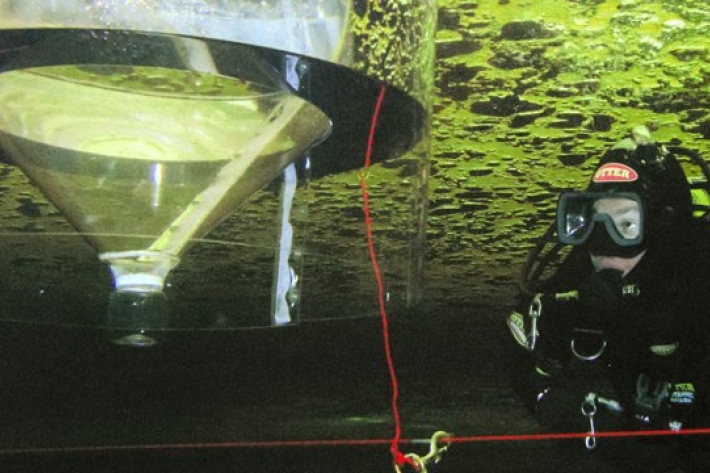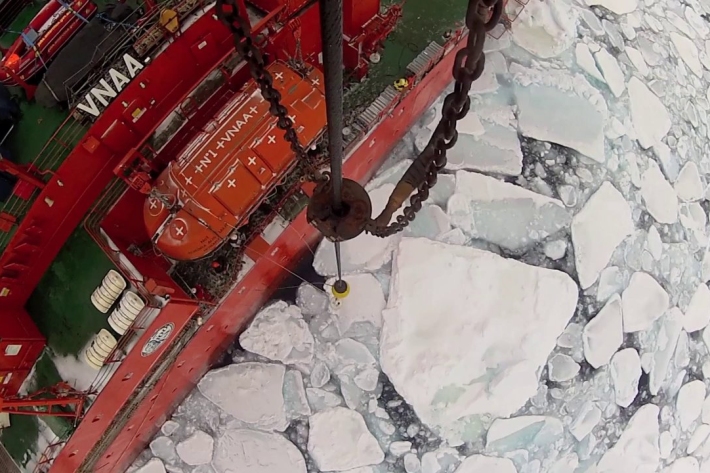-

Scientist plumb depths in search of clues to the earth’s climate
News article13 June 2014NIWA scientists are this month launching some cutting-edge technology capable of finding out what's going on at the bottom of the ocean. -

Northern-hemisphere fossil discovered living in New Zealand
News article29 May 2014A marine animal thought to have been extinct for four million years has been found alive and well and living near Picton. -

Tooth isotopes and statistical models helping scientists understand NZ sea lion decline
Feature story03 May 2014NIWA scientists are among a small group working to understand why New Zealand's sea lion population is declining. Using a range of methods, they're finding that the cause of the decline is varied, and includes changes in diet, bacterial infection, low pupping rates and low survival rates. -

Thin ice
In late 2013, a group of scientists from NIWA travelled to Antarctica to perform a series of experiments under the sea ice to look at how climate change and ocean acidification could affect this fragile ecosytem. -

NIWA scientists at sea
NIWA staff involved with the Louisville Seamount Chain voyage have wide ranging skills and expertise. -

Homeward bound
The Louisville Seamount Chain VME Voyage is now completed and we are on the long steam home, made challenging due to the weather. What happened to those sunny calm days we experienced on most of the voyage? -

International honour for NIWA scientist
News article25 March 2014NIWA scientist Cliff Law was today awarded the prestigious 2013 Hutchinson Medal, by the International Institute of Chemical Engineers. -

Measuring seawater chemistry on the Louisville Ridge
Ocean chemistry is changing rapidly due to the influx of carbon dioxide to the atmosphere, largely from human activities including the combustion of fossil fuels. -

Scientists discover how low a fish can go
News article05 March 2014Rarely seen fish caught in the Kermadec Trench have enabled scientists to better understand just how deep fish can survive in the ocean. -

Sampling seamounts
In this post we look at the tools we are using to undertake our survey of the seamounts on our voyage to the Louisville Seamount Chain. -

Seafloor life on the Louisville seamounts
The NIWA Deep Towed Imaging System (DTIS) enables us to capture video and still images of sea life on the ocean floor.


